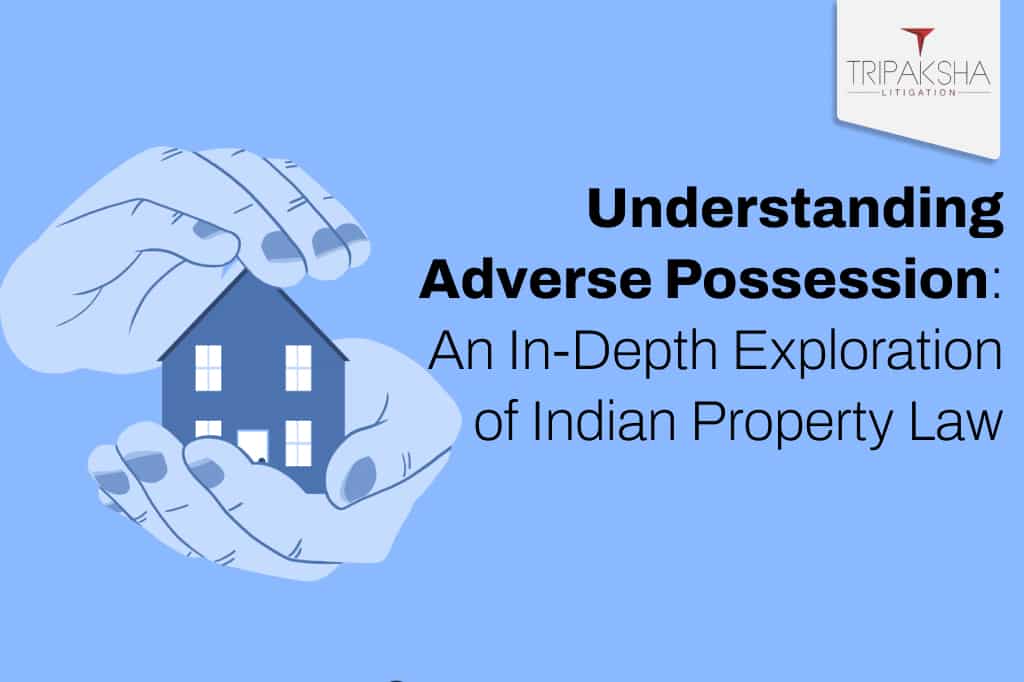Introduction:
In the realm of property law, the concept of adverse possession is both intriguing and contentious. It allows individuals to claim ownership of land they do not legally own through continuous and open occupation over a specified period. This legal doctrine has deep roots in Indian property law and has sparked numerous debates and legal battles over the years. In this article, we embark on a comprehensive journey to unravel the intricacies of adverse possession within the framework of Indian jurisprudence.
The Genesis of Adverse Possession in India
The concept of adverse possession finds its origins in British common law, which was adopted and adapted into Indian jurisprudence during the colonial era. Under Section 27 of the Limitation Act, 1963, adverse possession is recognized as a legitimate means to acquire title to land. According to this provision, if a person openly occupies a property for a continuous period of 12 years, without interruption and with the intention of asserting ownership, they can claim adverse possession.
Elements of Adverse Possession
For adverse possession to be established, certain essential elements must be satisfied:
- Actual Possession: The claimant must physically occupy the land in question, treating it as their own, without the permission of the true owner.
- Hostile Possession: The possession must be adverse to the interests of the true owner, meaning it is without their consent and in defiance of their rights.
- Open and Notorious: The possession must be visible, open, and notorious, putting the true owner on notice of the adverse claim.
- Continuous Possession: The occupation must be continuous and uninterrupted for the statutory period, which is typically 12 years.
- Intention to Possess: The claimant must demonstrate an intention to possess the land as their own, with the aim of acquiring title through adverse possession.
Legal Implications and Controversies
Adverse possession often raises complex legal issues and controversies. One of the primary debates revolves around the morality and fairness of allowing individuals to acquire land through what may be perceived as stealth or opportunism. Critics argue that adverse possession undermines the sanctity of property rights and can lead to unjust outcomes, especially for absentee or unaware landowners.
However, proponents of adverse possession contend that it serves important societal functions, such as preventing land from lying fallow and encouraging productive use. They argue that requiring long-term occupation as a condition for adverse possession ensures that claims are not frivolous and that genuine efforts to utilize the land are rewarded.
Case Law and Judicial Interpretation
Over the years, Indian courts have grappled with various aspects of adverse possession, shaping the legal landscape through their rulings. Landmark cases such as Rattan Singh v. Sundra Bai and Manohar Singh v. Balbir Singh have provided valuable guidance on the application of adverse possession principles in specific contexts.
Courts have emphasized the importance of proving each element of adverse possession and have been cautious in accepting claims without clear evidence of continuous and hostile possession. They have also reiterated that mere possession without animus possidendi (intention to possess) or possession with permission from the true owner cannot ripen into adverse possession.
Conclusion:
Adverse possession remains a complex and contentious aspect of Indian property law, balancing competing interests of property owners and occupiers. While it provides a mechanism for regularization of land rights and utilization of neglected properties, it also raises ethical and legal dilemmas. As Indian society evolves and land disputes become increasingly common, the principles and precedents surrounding adverse possession will continue to shape the contours of property rights and legal remedies in the country.
You may contact me for consultation or advice by visiting Contact Us and Call us

